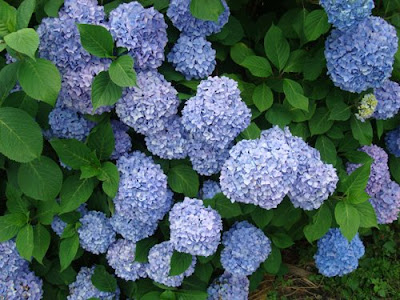Hydrangea - Ajisai
8:10
アジサイ 紫陽花
The quintessential rainy season flower in Japan is the hydrangea - ajisai in Japanese.

Appearing in gardens and temples throughout Honshu, Shikoku and Kyushu, the hydrangea is at its best in mid-June. The stems should be trimmed in the fall to ensure strong growth.

A number of temple and shrine gardens are well-known for their hydrangeas including Meigetsu-in in Kamakura, Fujimori Jinja Shrine in Fushimi in Kyoto and Tofukuji also in south east Kyoto.
The hydrangea is native to south and east Asia (China, Korea, Japan, the Himalaya region and Indonesia) as well as North and South America. There are over 70 species. The leaves are toxic if eaten and there have been a number of cases of Japanese restaurants serving the leaves as a garnish and unwittingly poisoning their customers!
© JapanVisitor.com
Yahoo Japan Auction Service
Book a Japanese Hotel with Bookings
Japanese Friends
Rough Guide To Japan
Tags
Japan flowers Ajisai Kyoto Hydrangea Japanese plants
The quintessential rainy season flower in Japan is the hydrangea - ajisai in Japanese.

Appearing in gardens and temples throughout Honshu, Shikoku and Kyushu, the hydrangea is at its best in mid-June. The stems should be trimmed in the fall to ensure strong growth.

A number of temple and shrine gardens are well-known for their hydrangeas including Meigetsu-in in Kamakura, Fujimori Jinja Shrine in Fushimi in Kyoto and Tofukuji also in south east Kyoto.
The hydrangea is native to south and east Asia (China, Korea, Japan, the Himalaya region and Indonesia) as well as North and South America. There are over 70 species. The leaves are toxic if eaten and there have been a number of cases of Japanese restaurants serving the leaves as a garnish and unwittingly poisoning their customers!
© JapanVisitor.com
Yahoo Japan Auction Service
Book a Japanese Hotel with Bookings
Japanese Friends
Rough Guide To Japan
Tags
Japan flowers Ajisai Kyoto Hydrangea Japanese plants
コメントを投稿